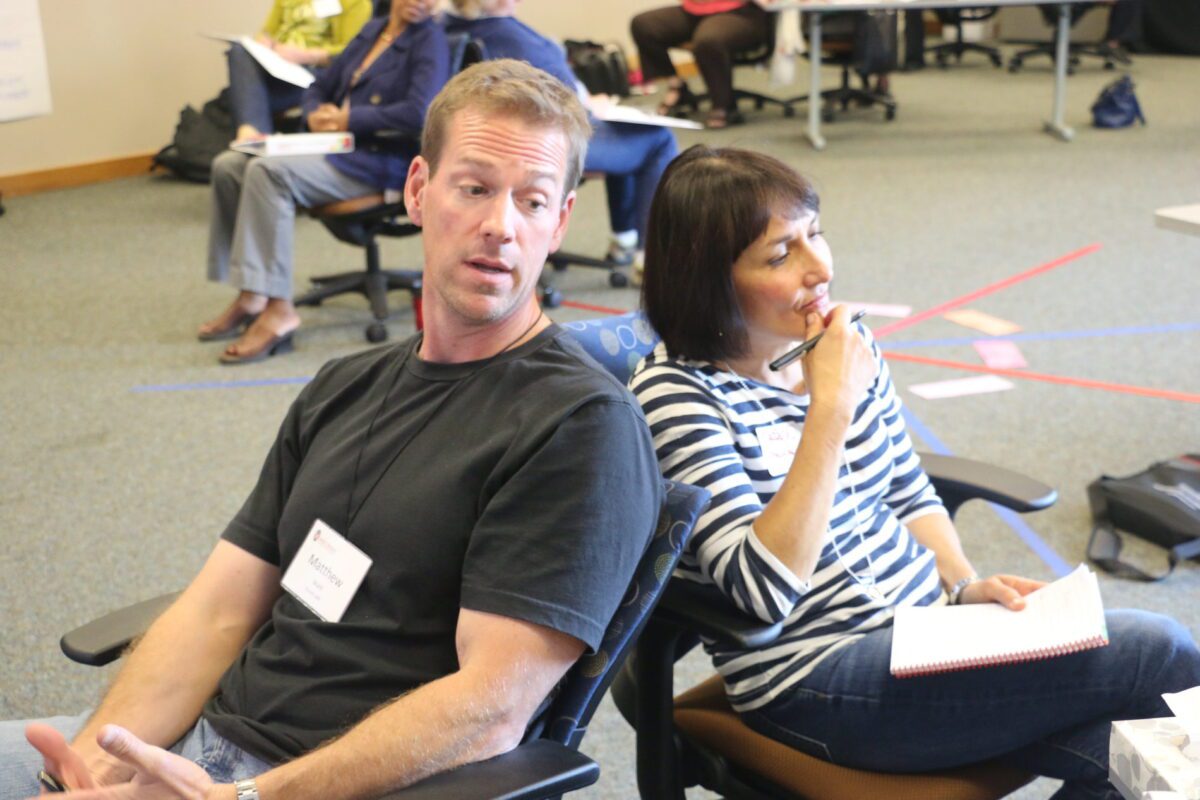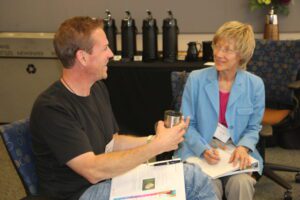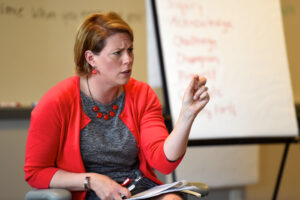
“Blended learning” refers to an educational program in which students learn both in the classroom and online. In an article for Web Courseworks, education consultant Jon Aleckson argues that such programs for adults often struggle to integrate technology in a meaningful way.

But Aleckson discovered a shining example of blended learning in the University of Wisconsin-Madison’s Professional Life Coaching Certificate (PLCC) program. His wife enrolled in the nine-month program, in which participants work toward professional credentialing through a series of face-to-face classes and teleconferences.
“I witnessed secondhand what I believe to be an example of best practice for blended learning design,” Aleckson says. “I’ve been a student of blending learning design theory for a long time, and witnessing this exemplary course helped crystallize for me the key ingredients for creating effective blended learning experiences.”
Aleckson lauds the program’s “star instructor,” Darcy Luoma, and its cohort model, in which students go through the course together while gaining a sense of community.

“Scheduled face-to-face classroom sessions complement and reinforce concepts from the online and telephone sessions and help the designers achieve their goal of providing a transformative experience,” he says.
The article also notes that, given its accreditation by the International Coaching Federation, the PLCC’s curriculum is rigorous.
“We want it to really mean something when people graduate from our program,” director Aphra Mednick tells Aleckson. “If someone’s going to hire them, there’s a standard that they know they can trust. The program is intense, but our students all thank us and say, ‘I would not have had it any other way.’”
Building an action plan
In another recent article about UW-Madison’s Professional Life Coaching Certificate program, the Badger Herald interviewed Luoma about the rewards of a career in life coaching.
“A life coach is someone who really helps clients identify what they want in life and what will make them happy or more successful,” she says. “By helping them build an action plan, you can help them determine what will allow them to be happier or more successful in fulfilling their purpose in life.”
The Badger Herald article explains that businesses can also benefit from hiring coaches to teach their employees communication and conflict-resolution skills.
For more information on the Professional Life Coaching Certificate program, contact Aphra Mednick, amednick@dcs.wisc.edu, 608-265-8041.